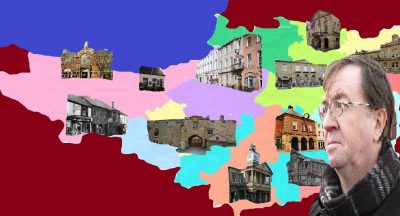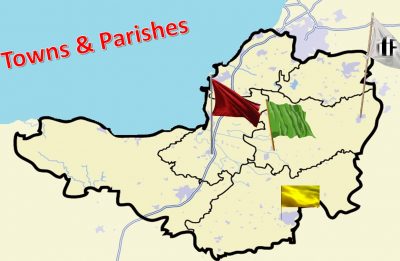
When Somerset County Council voted to submit their ONE SOMERSET business case to Government, this was a break from the common position held by all 5 Somerset councils (the 4 Districts + the County) agreed earlier in the year whereby they would all work together for the best solution. Then Covid hit and while the Districts refused to engage saying that it was the wrong time the County ploughed ahead getting its bid through Council in July. During this time the Labour Group, which controls Bridgwater Town Council, urged the Districts to engage and to move the debate forward approved the ‘Bridgwater Position’ which was based on the SALC proposals to ensure that Town and Parish Councils were involved in the engagement process, enshrining the doctrine of ‘the most power at the localest level’ in the Labour position.
The Bridgwater Position

The Districts finally started to engage when they realised that not only was Unitary Government likely to be coming but that the status quo option would not be considered. Their response has been the ‘Stronger Somerset’ proposal which splits the County into 2 smaller Unitaries, East and West . Cllr Brian Smedley (Labour Leader of Bridgwater Town Council) said “Bridgwater Labour Group believes that the County’s ‘One Somerset’ Unitary proposal was brought in at speed while people’s attention was elsewhere and that it is NOT driven by any desire to improve local democracy but to save money by cutting jobs and services and reducing local democracy and accountability . We therefore protest at the essentially undemocratic nature of it. We are particularly concerned that one of worse performing county authorities feels that it can take on the role of a big Unitary Authority. However, whilst we are not opposed to unitary government in principle the key factors in our engagement are

- That the boundaries must be right. We object to any oversized authority which reduces representation of the people and therefore becomes remote and unaccountable and so geographically the ‘Stronger Somerset’ option is better as it brings together the towns along the coast and M5 corridor into one administration whilst the south and east facing districts linking Frome, Yeovil and Glastonbury also makes economic sense reaching out along the A303 “
- That more services and responsibilities are devolved to the Towns and Parishes with the appropriate funding formula. This requires genuine negotiation to determine which services are best provided at the locallest level. To this end we need to look more closely at the proposed neighbourhood clusters and the localising and sharing of public services and that these are clearly listed and costed in any business case.
- That there is no reduction in jobs, public services and electoral representation.
- That the need for a ‘combined authority’ is clearly required for some services and we note this should include Transport and Children’s Services.
Click here for Labour concerns about Adult Social Care and Childrens Services.
